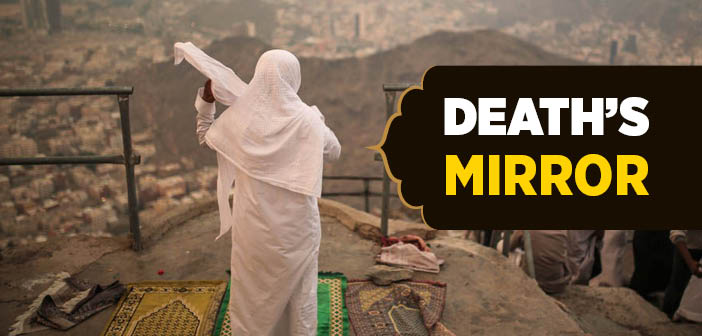What is the reckoning of animals in islam? What is the reckoning? What islam said about animals?
The Messenger of Allah (may Allah bless him and grant him peace) indicates that even animals will be held to account on the Day of Judgement:
“The rights of all creatures will be redressed on the Day of Resurrection until justice is restored, even between the hornless sheep and the horned sheep.” (Muslim, Birr, 60; Tirmidhi, Qiyama, 2/2420)
The Messenger of Allah (may Allah bless him and grant him peace) was once sitting when two sheep locked horns next to him, until one of them defeated and subdued the other.
The Messenger of Allah (may Allah bless him and grant him peace) smiled and someone asked him, “Why are you smiling, O Messenger of Allah?”
He replied, “Because of this scene. By the One in whose hand is my soul, it will settle its score with the other on the Day of Resurrection.” (Ahmad, V, 172)
These words of the Messenger are both a sign that this incident will transpire in the outward, literal sense, as well as constituting an admonition because the fact that the right of no creature, animals included, will be left uncompensated requires us to contemplate and reflect upon just how a serious a reckoning lies ahead for us.
This being the case, we should take lesson from this news and exert ourselves to the utmost to ensure that we do not violate the rights of, or wrong any creature in any way. In addition, taking into consideration the mercy of the Creator towards His creation, we must approach all creatures with a deep compassion, mercy and love.
We should not forget that all creation was brought into existence for the service of and as a lesson for the human being, hence they are entrusted to us. For this reason, treating them with compassion and protecting their rights is a debt of conscience for every human being. Violating the rights of animals is a heavy liability that will confront a person on the Day of Judgement.
‘A’isha (may Allah be well pleased with her) once mounted an unruly camel and she began to make it go back and forth, behaving severely with it so as it calms down.
Thereupon the Messenger of Allah (may Allah bless him and grant him peace) said, “You should show kindness, for kindness is not to be found in anything but that it adds to its beauty and it is not withdrawn from anything but it makes it defective.” (Muslim, Birr, 78, 79)
The Ottomans exhibited numerous examples in the matter of compassion for all creatures and observance of their rights.
For instance, they prohibited by law the overburdening of animals. Some local law enforcement agencies were even tasked with pursuing those who violated this law, letting the animal rest and requiring the owner to carry the same burden in punishment.
The series of imperial decrees issued by Sultan Suleyman the Magnificent (may Allah have mercy on him) in 1520 to 1566 concerning the animals used to carry loads during the construction of the Suleymaniye Mosque Complex, is a mark of this sensitivity. As per these decrees, the rest and grazing periods of the horses, donkeys and mules employed on the worksite were observed, and meticulous care was taken to ensure that the rights of no creature were violated. This caution of the Sultan in relation to human and animal rights in the construction of this monumental place of worship is perhaps one of the foremost wisdoms behind the mosque’s spiritual blessings.
Again, Sultan Suleyman once sought a legal pronouncement, in verse, from Shaykh al-Islam Ebus-suud (d. 1574) concerning the killing of the ants causing damage to the pear trees in the imperial garden:
If the ant eats away the tree,
Is there any harm in destroying it?
At the request of the Sultan, the jurisconsult replied to the Sultan in like manner:
When tomorrow the Divine Court you reach,
From Suleyman will the ant redress seek.
Ibn ‘Abbas (may Allah be well pleased with him) says in relation to the Qur’anic verse, “And when the wild beasts are gathered together,” (81:5):
“Everything will be gathered together on the Day of Gathering even the flies.”[1]
After all creatures are gathered on the Plain of the Supreme Gathering, the Reckoning will be established. The accounts between animals will be settled before those between human beings. All animals will then become dust.
It is declared in a Qur’anic verse:
“There is no creature crawling on the earth or flying creature, flying on its wings, who are not communities like yourselves – We have not omitted anything from the book – then they will be gathered to their Lord.” (Al-An’am, 6:38)
Abu Hurayra (may Allah be well pleased with him) says in relation to this Qur’anic verse:
“On the Day of Judgement, all creatures will be gathered in one place – animals, insects, birds, everything… Divine justice will be realised completely, so much so that even the hornless sheep will settle its account with the horned sheep. Then Allah will command the animals, ‘Become dust!’ Then the unbeliever (witnessing this) will say (in the terror of being called to account), ‘Oh! If only I were dust!’[2] (Hakim, Mustadrak, II, 345/3231. cf. Hakim, IV, 619/8716)
Undoubtedly, this state shows the point to which regret, shame and fear will be experienced on that Day.
[1] Ibn Kathir, Tafsir, (81:5).
[2] See Qur’an, (78:40).
Source: Osman Nuri Topbaş , Journey To Eternity, Erkam Publications





